Find Help
More Items From Ergsy search
-

Redundancy Coaching Couch 2: Redundancy and Passion
Relevance: 100%
-
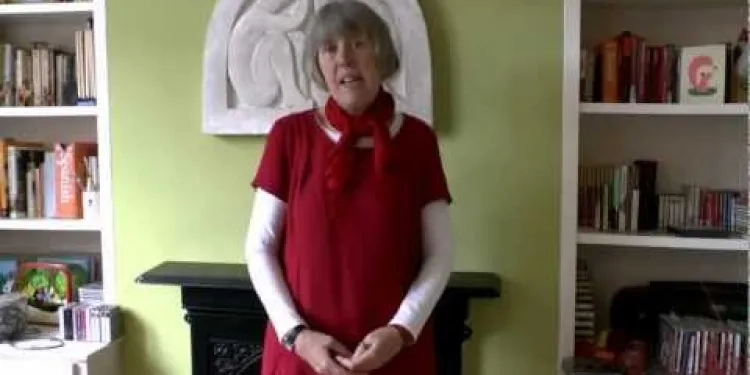
Redundancy Coaching Couch 7: Redundancy and Judgement.MTS
Relevance: 50%
-

Redundancy Coaching Couch 4:Redundancy and Language
Relevance: 50%
-
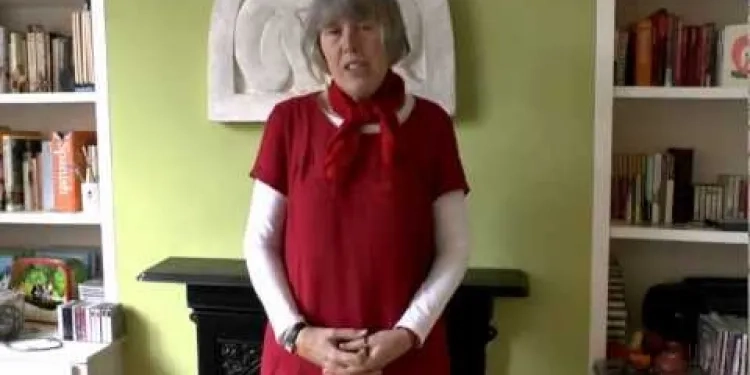
Redundancy Coaching Couch 5: Redundancy and Feedback.MTS
Relevance: 50%
-
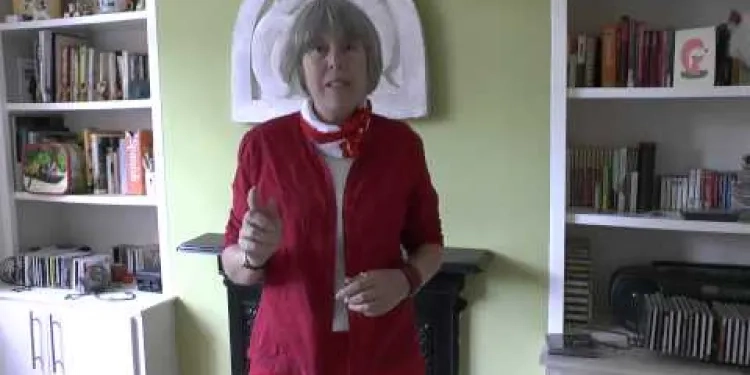
Redundancy Coaching Couch 1: Redundancy and Presuppositions
Relevance: 50%
-
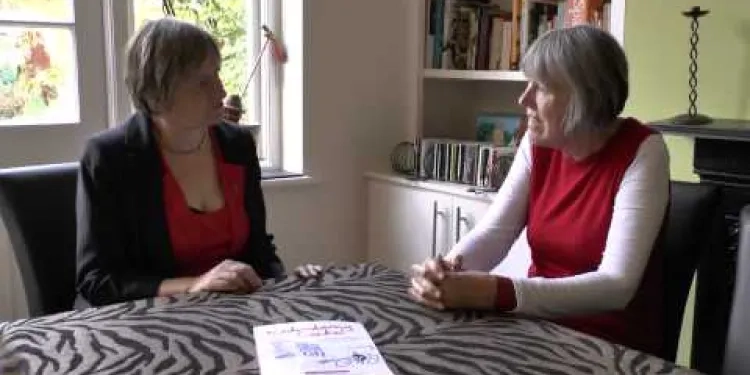
Redundancy Crusader and Annabel Kaye on communications in redundancy (5).MTS
Relevance: 48%
-
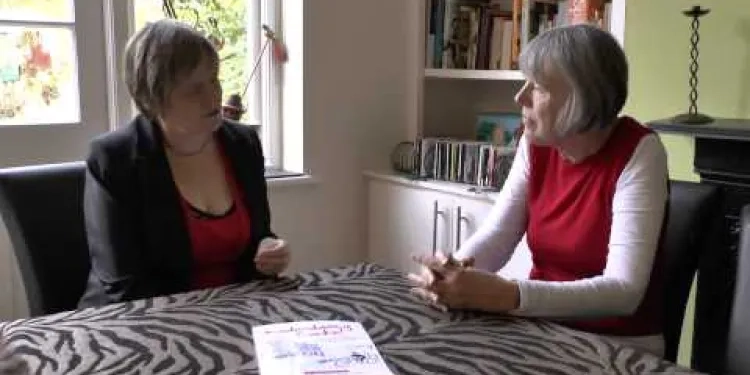
Redundancy Crusader and Annabel Kaye on scope and scale of redundancy (3).MTS
Relevance: 47%
-

Redundancy Crusader and Annabel Kaye on the Current Model of Redundancy (1).MTS
Relevance: 47%
-

Redundancy Crusader and Annabel Kaye on making redundancy a better experience (2).MTS
Relevance: 46%
-

What is the primary purpose of redundancy?
Relevance: 45%
-

What are the legal requirements for redundancy in the UK?
Relevance: 45%
-

What is the primary purpose of redundancy?
Relevance: 45%
-

What are the legal requirements for redundancy in the UK?
Relevance: 45%
-

How is redundancy pay calculated in the UK?
Relevance: 45%
-
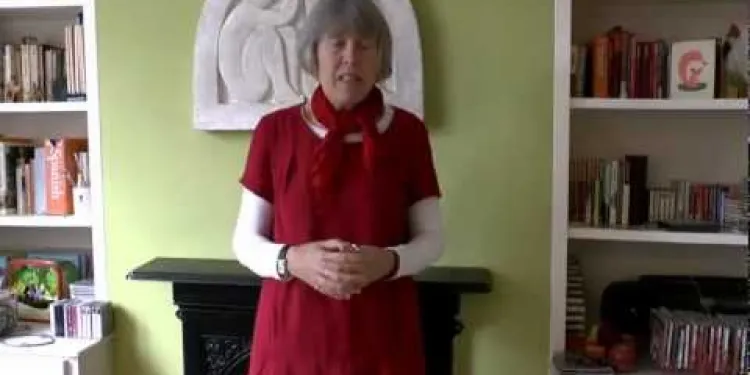
Redundancy Coaching Couch 3: States
Relevance: 45%
-
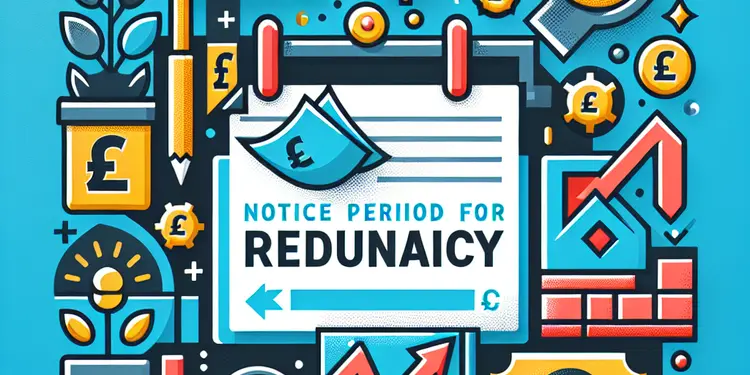
What is the notice period for redundancy?
Relevance: 44%
-

What is redundancy pay and who is eligible for it?
Relevance: 44%
-

What is redundancy pay and who is eligible for it?
Relevance: 44%
-
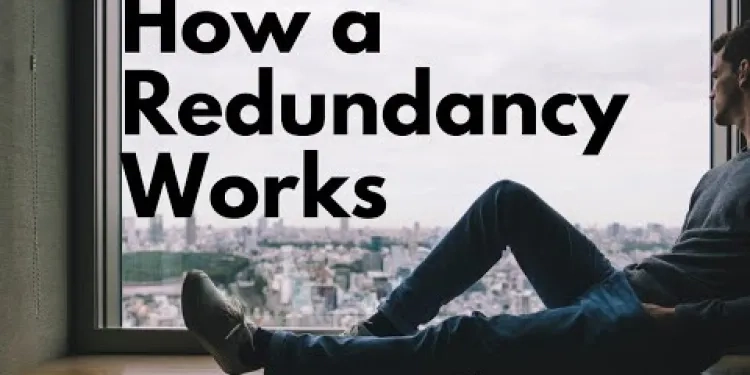
HOW A REDUNDANCY WORKS - General Information
Relevance: 44%
-
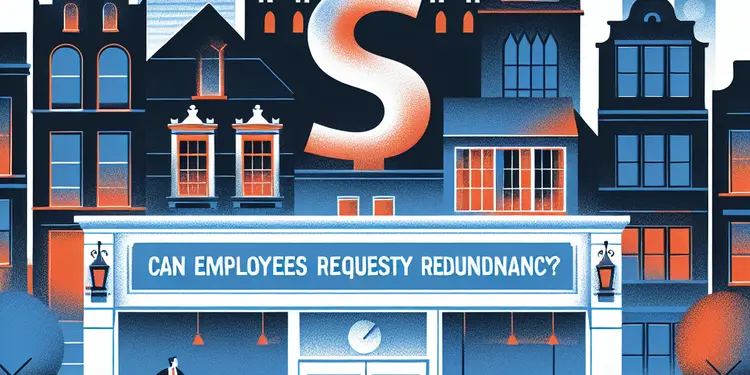
Can employees request voluntary redundancy?
Relevance: 44%
-

What is a fair selection process for redundancy?
Relevance: 43%
-

Can an employee appeal a redundancy decision?
Relevance: 43%
-

What is the role of trade unions in the redundancy process?
Relevance: 42%
-
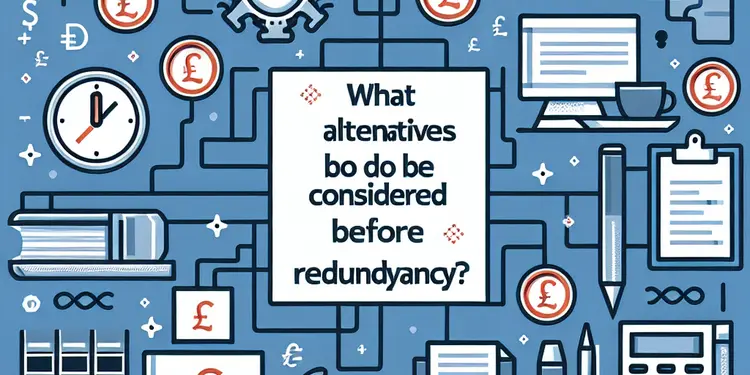
What alternatives should be considered before redundancy?
Relevance: 41%
-
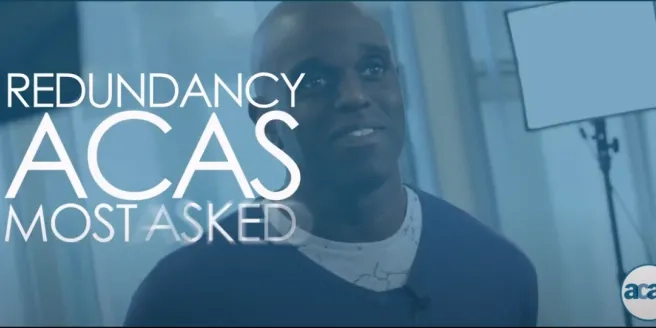
Frequently asked questions about redundancy from ACAS
Relevance: 41%
-
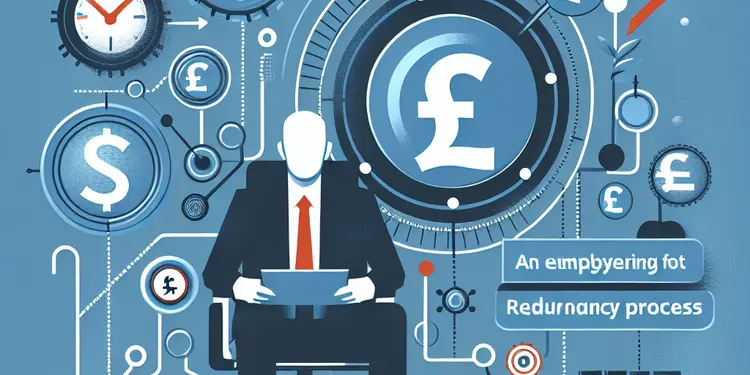
What happens if an employer does not follow the redundancy process?
Relevance: 41%
-

Are there any protections for employees on maternity leave during redundancy?
Relevance: 41%
-

What support can employees expect during redundancy?
Relevance: 41%
-
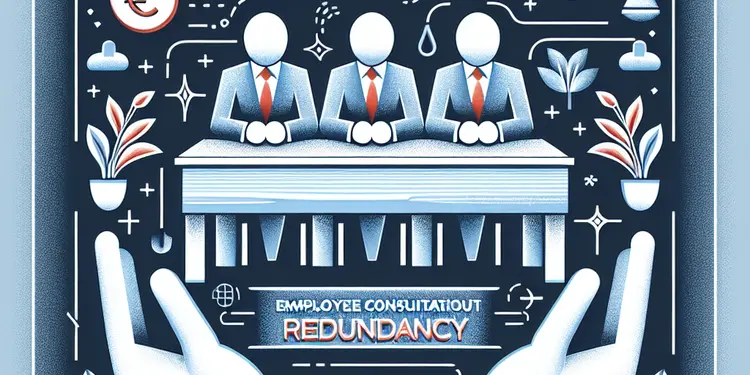
How should companies consult employees about redundancy?
Relevance: 41%
-

How should companies consult employees about redundancy?
Relevance: 40%
-

How should employers manage the emotional impact of redundancy on employees?
Relevance: 40%
-

What qualifications do I need to work for the National Trust?
Relevance: 18%
-

Understanding Your Rights: Legal Support for Families During Economic Turbulence
Relevance: 13%
-

Does the National Trust offer internships?
Relevance: 12%
-
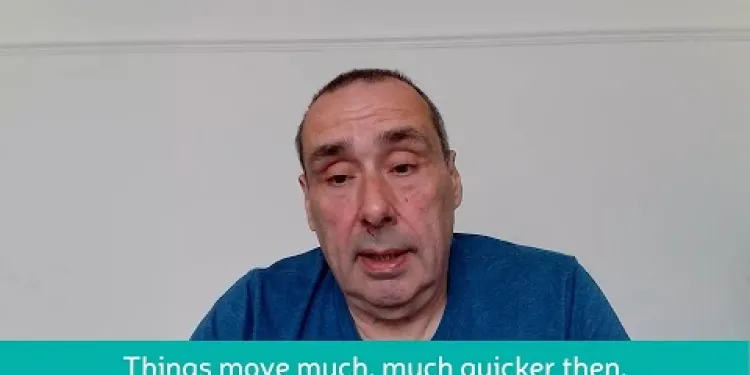
Bowel Cancer
Relevance: 10%
-

Dr Philippa Kaye's story
Relevance: 10%
-

Are there seasonal jobs with the National Trust?
Relevance: 10%
-

Can I get a job with the National Trust if I am a student?
Relevance: 10%
-

Can I work for the National Trust part-time?
Relevance: 10%
-

What is the process for applying to a nursing degree course?
Relevance: 9%
Redundancy may be an opportunity for you to follow your passion in the workplace.
If you have been in a job you dislike for years, take redundancy as an opportunity to move in to a role you will feel passionate about. Many people find it difficult to move o from positions they find unfulfilling, due to many reasons.
Here's why redundancy may be the opportunity you have been waiting for!
- Fulfillment and Satisfaction:
- Passion for your job often leads to a sense of fulfillment and satisfaction, as you are engaged in work that aligns with your interests and values.
- Increased Motivation:
- Passion provides intrinsic motivation, making it easier to overcome challenges and persist through difficulties, ultimately contributing to greater success in your career.
- Enhanced Performance:
- When you are passionate about your work, you are more likely to invest time and effort into improving your skills. This commitment often results in higher performance levels.
- Innovation and Creativity:
- Passionate individuals are more likely to think creatively and innovate within their field. A genuine love for the work can inspire fresh ideas and unique problem-solving approaches.
- Job Satisfaction Leads to Better Health:
- Studies suggest that job satisfaction, often derived from doing work you love, is linked to better physical and mental health.
- Increased Resilience:
- Passion can foster resilience, helping you bounce back from setbacks more quickly. The emotional connection to your work can provide a sense of purpose that sustains you during tough times.
- Career Longevity:
- Passion often contributes to a long and fulfilling career. When you enjoy what you do, you are more likely to stay committed to your profession over the long term.
- Positive Impact on Relationships:
- Being passionate about your job can positively affect your personal life. When you are content and fulfilled at work, it can contribute to a positive mindset that extends to your relationships.
- Continuous Learning:
- Passionate individuals are often eager to learn and grow within their field. This continuous learning can lead to a dynamic and evolving career path.
- Contribution to Society:
- Pursuing a job you are passionate about can allow you to make a meaningful contribution to society. Whether through innovative products, services, or social impact, your work can have a positive influence on others.
Redundancy Coaching Couch 2: Redundancy and Passion
Understanding Redundancy
Redundancy is an unavoidable reality in today's fast-paced job market, particularly in the United Kingdom where businesses are continuously evolving. It can be a daunting experience, often leading to uncertainty and fear. However, with the right mindset and a robust action plan, redundancy can transform into an opportunity for personal and professional growth.Embracing Passion Through Redundancy
Redundancy can serve as a catalyst for discovering and nurturing personal passions that may have been sidelined. Instead of viewing it solely as a setback, consider it a phase of introspection and reinvention. During this period, tapping into your passions can lead to the exploration of new career paths, hobbies, and interests that align more closely with your values and aspirations.Seeking Professional Redundancy Coaching
In the UK, the redundancy coaching industry is well-established and offers valuable support for those navigating the complexities of job loss. Professional redundancy coaches are equipped to provide tailored advice, helping individuals to redefine their career goals, build resilience, and leverage their passion in shaping a fulfilling future.Building a Passion-Driven Career
With the guidance of a redundancy coach, individuals can channel their passions into new and exciting career opportunities. This support may include practical steps such as updating resumes, sharpening interview techniques, and enhancing digital presence—key components for making a successful career transition in the modern job market.Networking and Community Support
In addition to individualized coaching, building a network of like-minded professionals can be incredibly beneficial. The UK boasts a range of support groups, workshops, and networking events dedicated to those affected by redundancy. Engaging with these resources can help individuals stay motivated, gain fresh perspectives, and discover potential job leads.Conclusion: Transforming Redundancy with Passion
Redundancy, while challenging, offers a unique opportunity to realign your career with your passions. Through effective use of redundancy coaching services and community support, individuals can navigate this transition gracefully and emerge with a renewed sense of purpose and direction. By embracing passion, redundancy can ultimately become a stepping stone to a more satisfying and meaningful career path in the United Kingdom.Redundancy can help you do a job you love.
If you have been doing a job you do not like for a long time, redundancy can be a chance to find work you enjoy. Many people find it hard to leave jobs they do not like for different reasons.
Here is why redundancy could be the chance you have been waiting for!
- Feeling happy with your job:
- When you love your job, you feel happy and satisfied because you are doing something you like and care about.
- More motivation:
- When you love your job, you are more excited to do it, even when it's hard. This can help you do better at work.
- Better work skills:
- When you are excited about your job, you try to get better at it. This can make you even better at your job.
- New ideas:
- People who love their work often have new and creative ideas. This helps with finding new ways to do things.
- Being happy at work is good for your health:
- Studies say that liking your job can make you healthier in body and mind.
- Being strong during tough times:
- Loving your work can help you feel stronger and get through hard times. It gives you a reason to keep going.
- Long-lasting career:
- When you enjoy your job, you are more likely to keep doing it for a long time.
- Better relationships:
- Loving your job can make you happier, which can make your relationships better too.
- Always learning:
- People who love their jobs like to learn new things and get better. This can lead to exciting new opportunities.
- Helping others:
- Doing a job you care about can help other people, too. Your work can make a difference in the world.
Redundancy Coaching Couch 2: Redundancy and Passion
What is Redundancy?
Redundancy means losing your job because the employer does not need your role anymore. It can happen a lot in the UK because businesses change often. Losing your job can be scary, but it can also bring new chances. With the right help, you can turn it into a chance to grow, learn new things, and maybe even find a better job.Finding Passion During Redundancy
Losing your job can help you find what you really love doing. Instead of feeling sad, use this time to think about what makes you happy. You can try new hobbies or think about a new job that matches your values and dreams.Getting Help from a Redundancy Coach
In the UK, there are special people called redundancy coaches who can help when you lose your job. They give good advice and support. They can help you set new job goals, stay strong, and use what you love to build a better future.Creating a Job You Love
With help from a redundancy coach, you can use your passions to find new job chances. They can help you update your resume, practice for job interviews, and improve your online job profile. These steps are important for finding a new job that you will enjoy.Getting Support from Others
Besides having a coach, meeting other people who are also looking for new jobs can help a lot. In the UK, there are groups, workshops, and events for people who lost their jobs. Joining these can help you stay positive, learn new things, and find out about new job openings.Conclusion: Turning Redundancy Into a Positive
Losing a job is hard, but it can be a chance to find a job you really care about. With help from coaches and support from groups, you can handle this change well and find a new job that you love. By focusing on what you are passionate about, losing your job can lead to a better and happier career in the UK.Frequently Asked Questions
What is redundancy coaching?
Redundancy coaching helps individuals navigate the emotional and practical aspects of job loss, enabling them to build confidence, seek new opportunities, and align their career path with their passions and skills.
Who can benefit from redundancy coaching?
Anyone facing redundancy, whether it is anticipated or unexpected, can benefit, as well as those who want to preemptively prepare for the possibility of job loss.
How does redundancy coaching differ from career coaching?
While career coaching focuses on general career development and progression, redundancy coaching specifically addresses the challenges and opportunities arising from job loss, including emotional support and strategic job search guidance.
Can redundancy coaching help me find a new job?
Yes, it can provide job search strategies, resume and interview preparation, networking tips, and support in identifying suitable roles that match your skills and passions.
Is redundancy coaching confidential?
Yes, redundancy coaching sessions are confidential, providing a safe space for clients to discuss their feelings, challenges, and career aspirations openly.
How soon should I start redundancy coaching after being made redundant?
It’s advisable to start as soon as possible to help manage the emotional impact, maintain self-esteem, and begin planning your next steps effectively.
What are some common emotional challenges addressed in redundancy coaching?
Common emotional challenges include dealing with anxiety, loss of identity, stress, uncertainty about the future, and rebuilding confidence.
Can redundancy coaching help with financial planning post-redundancy?
While redundancy coaching focuses primarily on emotional and career support, it can provide guidance on where to seek professional financial advice and how to manage immediate financial concerns.
How long does redundancy coaching typically last?
The duration varies depending on individual needs, but many find benefit from a few sessions to several months of ongoing support.
What qualifications should I look for in a redundancy coach?
Look for coaches with professional certifications in coaching, experience in career and redundancy coaching, and good testimonials or reviews from past clients.
How does redundancy coaching align with finding my passion?
Coaches help clients explore their interests, values, and strengths to identify fulfilling career paths that align with their passions, guiding them toward roles they find meaningful.
Are redundancy coaching sessions usually conducted online or in-person?
Sessions can be conducted in both formats, depending on the coach’s practice and the client’s preference, providing flexibility to suit individual needs.
Can redundancy coaching assist with starting my own business?
Yes, it can help you evaluate the feasibility of business ideas, develop a business plan, and provide support throughout the entrepreneurial journey.
Is redundancy coaching covered by employers or benefits packages?
Some employers include redundancy coaching as part of their outplacement services or benefits package. It’s worth checking with your HR department or outplacement provider.
How do I find a reputable redundancy coach in the UK?
Seek recommendations from trusted sources, read online reviews, check credentials and certifications, and arrange initial consultations to find a coach who matches your needs and comfort level.
What is redundancy coaching?
Redundancy coaching helps people when they lose their job. It gives support and advice on what to do next. A coach can teach you new skills and help you find a new job. If you are feeling upset, a coach can listen and help you feel better. You can also use tools like job websites or ask a friend for help.
Redundancy coaching helps people when they lose their jobs. It teaches them how to feel better and what to do next. It helps them feel strong, find new jobs, and choose work that makes them happy and uses their skills.
Who can get help from redundancy coaching?
If you think you might lose your job, or if it happens suddenly, this can help you. It's also good for people who want to get ready just in case they lose their job.
How is redundancy coaching different from career coaching?
Redundancy coaching helps people who have lost their jobs. It supports them in finding new work.
Career coaching helps people plan their work life. It supports them in choosing a job or moving up in a job.
If reading is hard, you can try:
- Reading with someone else
- Using a reading app that reads out loud
- Highlighting important words
Career coaching helps people get better at their jobs and move up in their careers. Redundancy coaching is a bit different. It helps people who have lost their jobs. It gives them support for their feelings and helps them look for new jobs.
Can redundancy coaching help me find a new job?
If you lose your job, it is called redundancy. Losing a job can be hard. Redundancy coaching is when someone helps you after losing a job. This coach can help you find a new job.
The coach can help you make a good resume or CV. They can also help you practice for job interviews. They teach you how to look for jobs. This can make you feel better and ready to find new work.
Here are some tips to help you:
- Make a list of what you are good at.
- Write down jobs you might like.
- Use the computer to search for jobs.
- Ask family and friends for help.
Redundancy coaching can be very helpful when you want to find a new job.
Yes, it can help you find a job. It gives you ideas on how to look for jobs, write your resume, and get ready for interviews. It also shows you how to meet people who can help you find a job. It can help you find jobs that are good for your skills and things you like.
Is redundancy coaching private?
Yes, redundancy coaching is private. This means we keep your details secret. No one else will know what you talk about in coaching.
If you want, you can use tools to help you. You can ask someone to help you understand words. You can also use apps that read text aloud.
Yes, redundancy coaching sessions are private. They are a safe place. You can talk about your feelings, problems, and work dreams freely.
When should I start getting help with finding a new job after losing my job?
If you lost your job, it's a good idea to start getting help soon. You can talk to someone who can give you advice on what to do next. This is called "job coaching." They can help you plan and feel better about looking for a new job. Start as soon as you can, so you don’t feel worried for too long.
If reading is hard for you, ask someone to read it with you, or use tools like an audiobook or a text-to-speech app.
It is good to start early. This helps you feel better, feel good about yourself, and make plans for what to do next.
What feelings do people have when they lose their jobs?
People often feel mixed-up feelings. They might feel worried or scared. They might feel like they don’t know who they are. They can feel stressed or not sure about what will happen next. They also might need to feel brave again.
Can getting help after losing your job help with money planning?
If you lose your job, talking to someone can help you plan your money. This is called "redundancy coaching."
Redundancy coaching is like a guide. It helps you know what to do with your money after losing your job.
Here are some things that can help you:
- Make a list: Write down all the things you need to pay for.
- Set a budget: Decide how much money you can use each week.
- Ask for support: Talk to family or friends who can help you.
Remember, it's okay to ask for help. There are people who can guide you through this time.
Redundancy coaching helps with feelings and finding new jobs. It also shows you where to get help with money problems and ways to handle money worries right now.
How long does redundancy coaching usually take?
Redundancy coaching usually lasts a few weeks to a few months. It helps people find new jobs when they lose their old ones.
Some helpful tools and techniques are:
- Writing a new resume
- Practicing for interviews
- Learning new skills
- Getting support from friends or family
The time it takes can be different for each person. Some people feel better after a few meetings, while others may need help for a few months.
What should I look for in a job loss coach?
When you lose your job, it can be helpful to have someone to talk to. This person is called a job loss coach. Here is what you should look for:
- Experience: Find someone who has helped others in a similar situation. Ask them about their past work.
- Training: Look for a coach who has been trained or has a certificate in helping people with job loss.
- Understanding: It is important they listen to you and understand how you feel.
- Good advice: They should be able to give you helpful tips on finding a new job or feeling better.
If you need help reading or understanding this, you can use a tool like text-to-speech to have it read out loud. You can also talk to someone you trust for help.
Find coaches who have special certificates. They should be trained in helping people with their jobs and when they lose their jobs. Look for coaches with good reviews from people they helped before.
How can coaching for losing a job help me find what I love?
Coaches help people find jobs they love. They talk about what people like, what they are good at, and what is important to them. Then, they help them find a job that makes them happy.
Do people usually have redundancy coaching sessions online or face-to-face?
If you are wondering how redundancy coaching sessions happen, here's a simple answer:
- Some people have them online using a computer or tablet. This way, you can be at home!
- Others have them in-person, which means you go to a place to meet the coach.
Talk to your coach about what works best for you.
Use your calendar to remember your sessions. You can also use reminders on your phone to help you.
Meetings can happen in different ways. You can choose what you like best. This helps make sure everyone is happy and comfortable.
Can a coach help me start my own business after losing my job?
Yes, it can help you decide if your business idea is possible, make a business plan, and give support as you start your business.
Do jobs or benefits pay for help if you might lose your job?
Some companies help if you lose your job. They might offer special coaching. This is to help you find a new job. Ask the people who work in Human Resources (HR) at your company. They can tell you if you can get this help.
How can I find a good job loss helper in the UK?
Here is how you can find someone to help if you lose your job:
- Ask your friends or family if they know a good person who helps with job loss.
- Look on the internet for reviews about job loss helpers in the UK.
- Check websites where people talk about their experiences with job loss helpers.
Here are some tools that can help:
- Use Simple English websites to find information.
- Search for videos that explain job loss helpers in an easy way.
Ask friends or family for good ideas. Read what other people say online. Check if the coach has the right training. Meet the coach first to see if you like them and if they can help you.
Useful Links
This website offers general information and is not a substitute for professional advice.
Always seek guidance from qualified professionals.
If you have any medical concerns or need urgent help, contact a healthcare professional or emergency services immediately.
- Ergsy carfully checks the information in the videos we provide here.
- Videos shown by Youtube after a video has completed, have NOT been reviewed by ERGSY.
- To view, click the arrow in centre of video.
- Most of the videos you find here will have subtitles and/or closed captions available.
- You may need to turn these on, and choose your preferred language.
- Go to the video you'd like to watch.
- If closed captions (CC) are available, settings will be visible on the bottom right of the video player.
- To turn on Captions, click settings .
- To turn off Captions, click settings again.
More Items From Ergsy search
-

Redundancy Coaching Couch 2: Redundancy and Passion
Relevance: 100%
-

Redundancy Coaching Couch 7: Redundancy and Judgement.MTS
Relevance: 50%
-

Redundancy Coaching Couch 4:Redundancy and Language
Relevance: 50%
-

Redundancy Coaching Couch 5: Redundancy and Feedback.MTS
Relevance: 50%
-

Redundancy Coaching Couch 1: Redundancy and Presuppositions
Relevance: 50%
-

Redundancy Crusader and Annabel Kaye on communications in redundancy (5).MTS
Relevance: 48%
-

Redundancy Crusader and Annabel Kaye on scope and scale of redundancy (3).MTS
Relevance: 47%
-

Redundancy Crusader and Annabel Kaye on the Current Model of Redundancy (1).MTS
Relevance: 47%
-

Redundancy Crusader and Annabel Kaye on making redundancy a better experience (2).MTS
Relevance: 46%
-

What is the primary purpose of redundancy?
Relevance: 45%
-

What are the legal requirements for redundancy in the UK?
Relevance: 45%
-

What is the primary purpose of redundancy?
Relevance: 45%
-

What are the legal requirements for redundancy in the UK?
Relevance: 45%
-

How is redundancy pay calculated in the UK?
Relevance: 45%
-

Redundancy Coaching Couch 3: States
Relevance: 45%
-

What is the notice period for redundancy?
Relevance: 44%
-

What is redundancy pay and who is eligible for it?
Relevance: 44%
-

What is redundancy pay and who is eligible for it?
Relevance: 44%
-

HOW A REDUNDANCY WORKS - General Information
Relevance: 44%
-

Can employees request voluntary redundancy?
Relevance: 44%
-

What is a fair selection process for redundancy?
Relevance: 43%
-

Can an employee appeal a redundancy decision?
Relevance: 43%
-

What is the role of trade unions in the redundancy process?
Relevance: 42%
-

What alternatives should be considered before redundancy?
Relevance: 41%
-

Frequently asked questions about redundancy from ACAS
Relevance: 41%
-

What happens if an employer does not follow the redundancy process?
Relevance: 41%
-

Are there any protections for employees on maternity leave during redundancy?
Relevance: 41%
-

What support can employees expect during redundancy?
Relevance: 41%
-

How should companies consult employees about redundancy?
Relevance: 41%
-

How should companies consult employees about redundancy?
Relevance: 40%
-

How should employers manage the emotional impact of redundancy on employees?
Relevance: 40%
-

What qualifications do I need to work for the National Trust?
Relevance: 18%
-

Understanding Your Rights: Legal Support for Families During Economic Turbulence
Relevance: 13%
-

Does the National Trust offer internships?
Relevance: 12%
-

Bowel Cancer
Relevance: 10%
-

Dr Philippa Kaye's story
Relevance: 10%
-

Are there seasonal jobs with the National Trust?
Relevance: 10%
-

Can I get a job with the National Trust if I am a student?
Relevance: 10%
-

Can I work for the National Trust part-time?
Relevance: 10%
-

What is the process for applying to a nursing degree course?
Relevance: 9%


